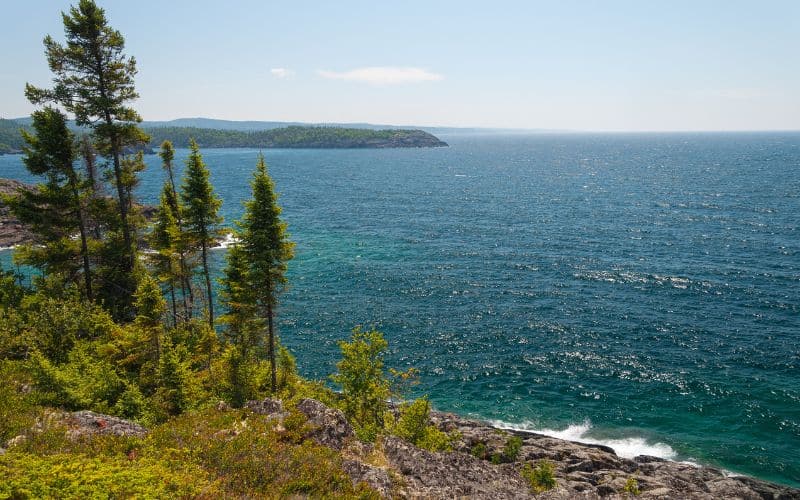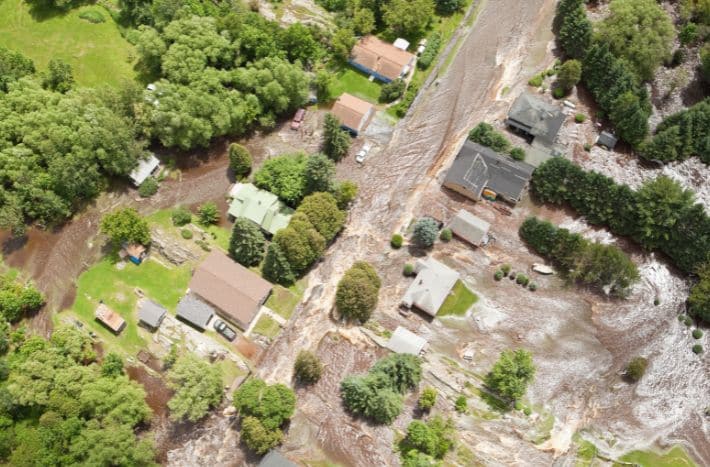Winners for Great Lakes Regional Challenge Announced

Four communities in the Great Lakes Region will receive technical assistance and training to strengthen their resilience to coastal flooding, as part of the Great Lakes Regional Challenge. The communities are the City of New Baltimore, MI; City of St. Clair Shores, MI; Minnesota Point, Duluth, MN; and Wayne County, NY.
The Great Lakes Regional Challenge is a project of the Association of State Floodplain Managers (ASFPM), the American Planning Association (APA), the Coastal States Organization (CSO) and the Great Lakes Sea Grant Network via Wisconsin Sea Grant. The program is open to coastal communities in the U.S. Great Lakes with populations of 250,000 or less.
In Summer 2023, the four communities will participate in a coastal resilience training and peer exchange workshop. During the workshop, attendees will receive intensive, hands-on training designed to boost their capacity to better plan for, prepare for, and adapt to extreme lake levels and associated weather and climate-related hazards. Teams will identify areas where ecological restoration (i.e. nature-based) efforts will have the greatest impact for social, economic, and environmental resilience to coastal flooding, and develop plans that identify and describe specific efforts to increase resilience and reduce coastal flood exposure in those areas. The workshop will include panel discussions, skill-building sessions, and strategy and modeling exercises.
In addition, each community will also receive one year of individual assistance to support their efforts. At the end of the year, the four communities will conclude the program with:
- One vulnerability self-assessment,
- A set of planning scenarios,
- At least one identified natural or nature-based project for implementation,
- One action plan,
- At least two identified potential funding source(s) to support its implementation,
- Access to a regional community of practice, and
- Improved hard and soft skills around coastal resilience.
This multi-year project, funded by National Fish and Wildlife Foundation’s (NFWF) National Coastal Resilience Fund, provides key support to ASFPM’s mission to mitigate current and future losses, costs and human suffering caused by flooding, and to protect the natural and beneficial functions of floodplains – all without causing adverse impacts.
Extreme lake levels, whether high or low, cause complex and dynamic economic and water and habitat management challenges for Great Lakes region communities and states. In 2017, the Great Lakes marine economy employed 315,000 people and generated $9.1 billion in wages and $19.5 billion of gross domestic product. According to the Great Lakes and St. Lawrence Cities Initiative, current high lake levels are estimated to cost local governments in the U.S. and Canada more than $1.3 billion — $450 million on short-term fixes and $865 million on future planning and mitigation — and those numbers only include local public projects, not projects on state, federal and private lands. This program is intended to help smaller Great Lakes coastal communities improve their ability to address coastal flooding and other climate-related hazards.
As part of the larger Strengthening Coastal Communities Resilience in the Great Lakes Region Challenge program, ASFPM and its partners will host webinars and workshops at their conferences during the next two years, and will update the Great Lakes Coastal Resilience Planning Guide with new resources and local stories.
To learn more about the program, visit no.floods.org/GLChallenge. Please direct additional questions to Elizabeth Zinecker, ASFPM Project Manager, at ezinecker@floods.org.

